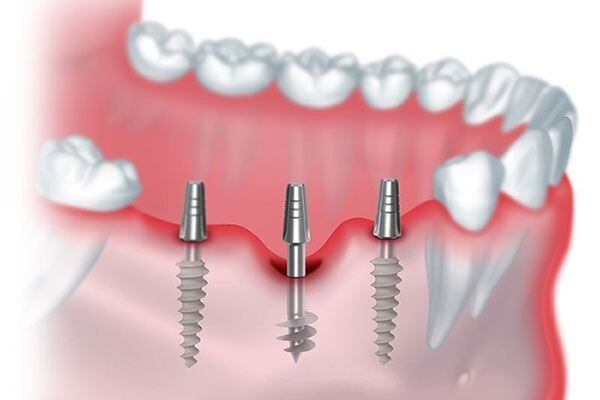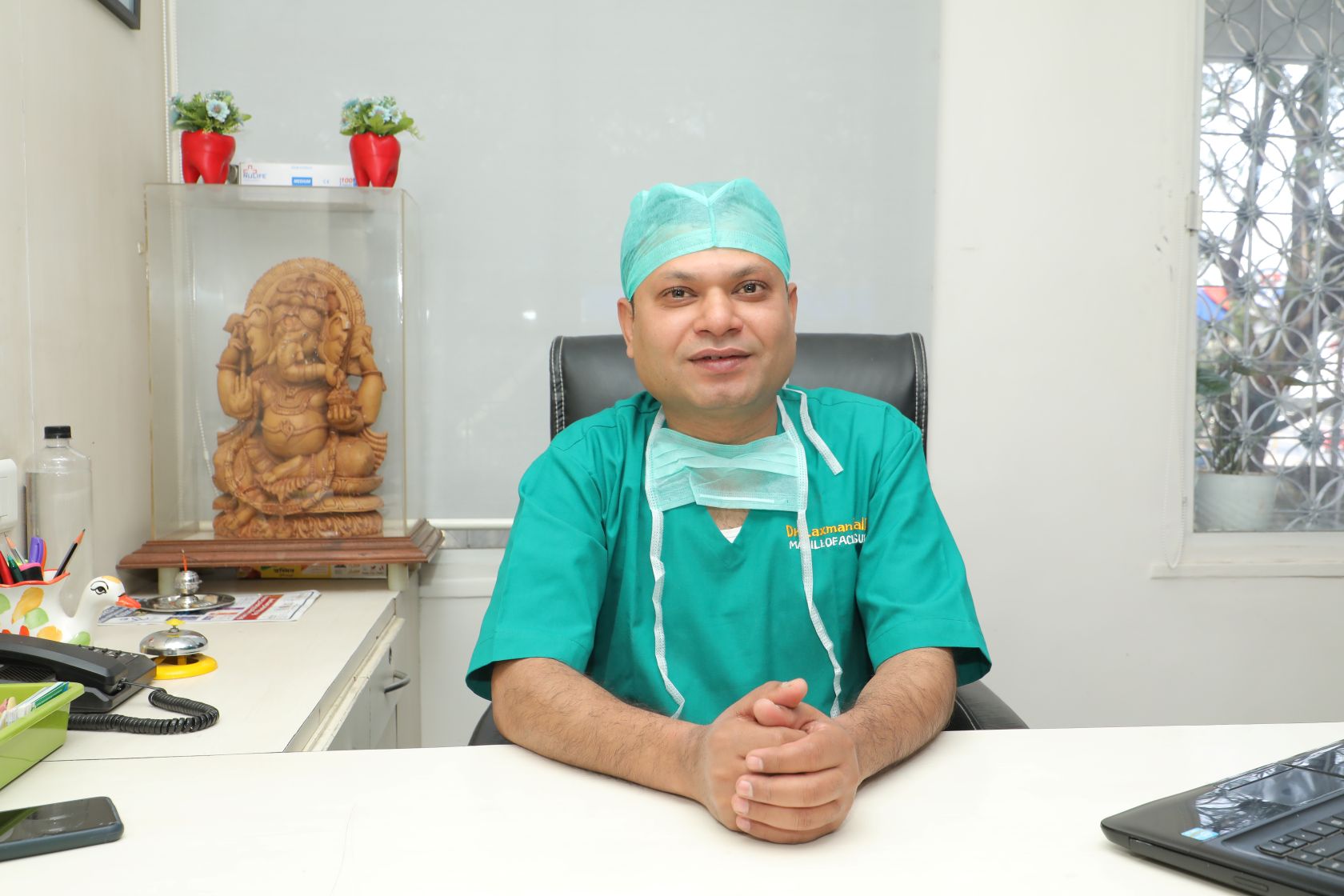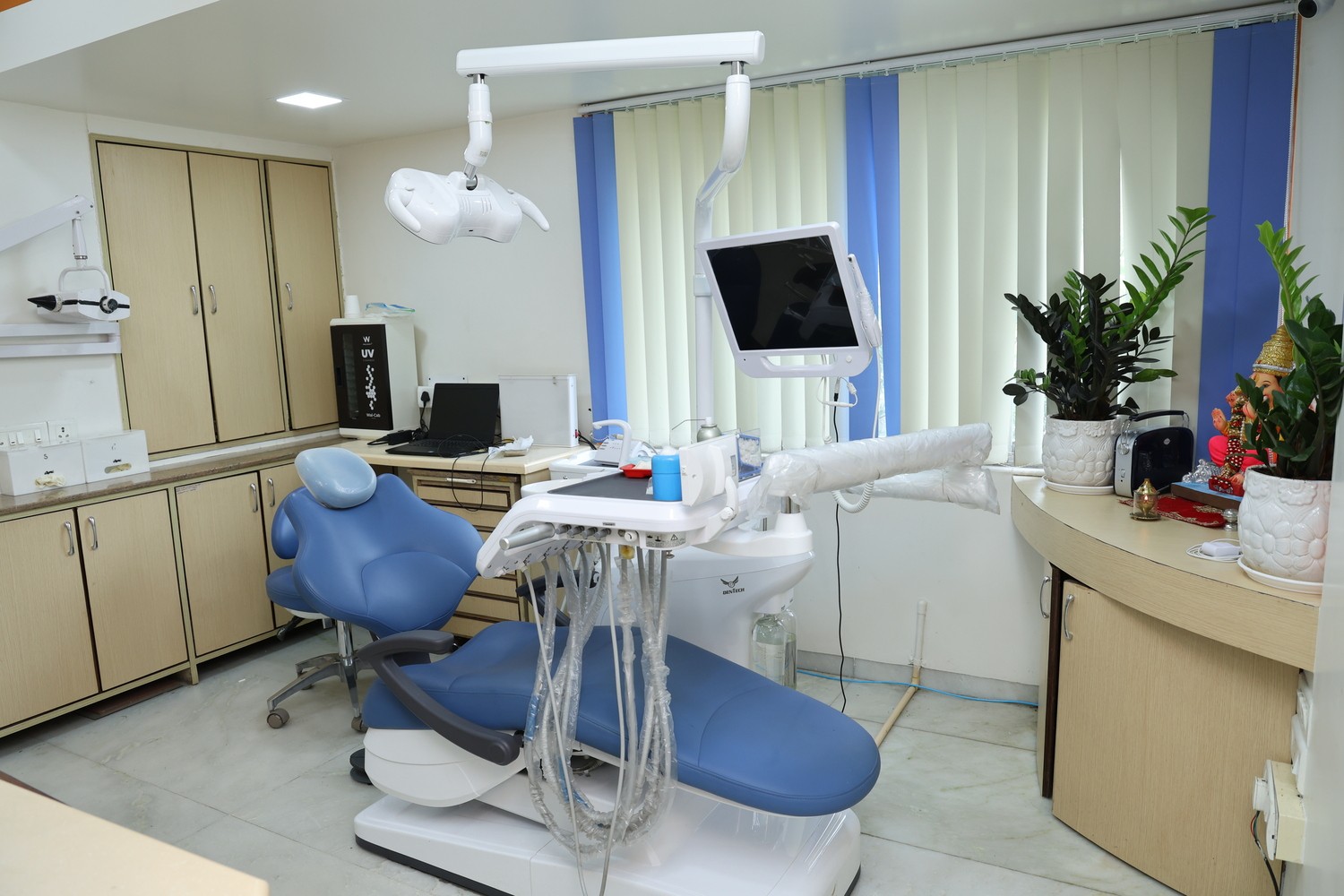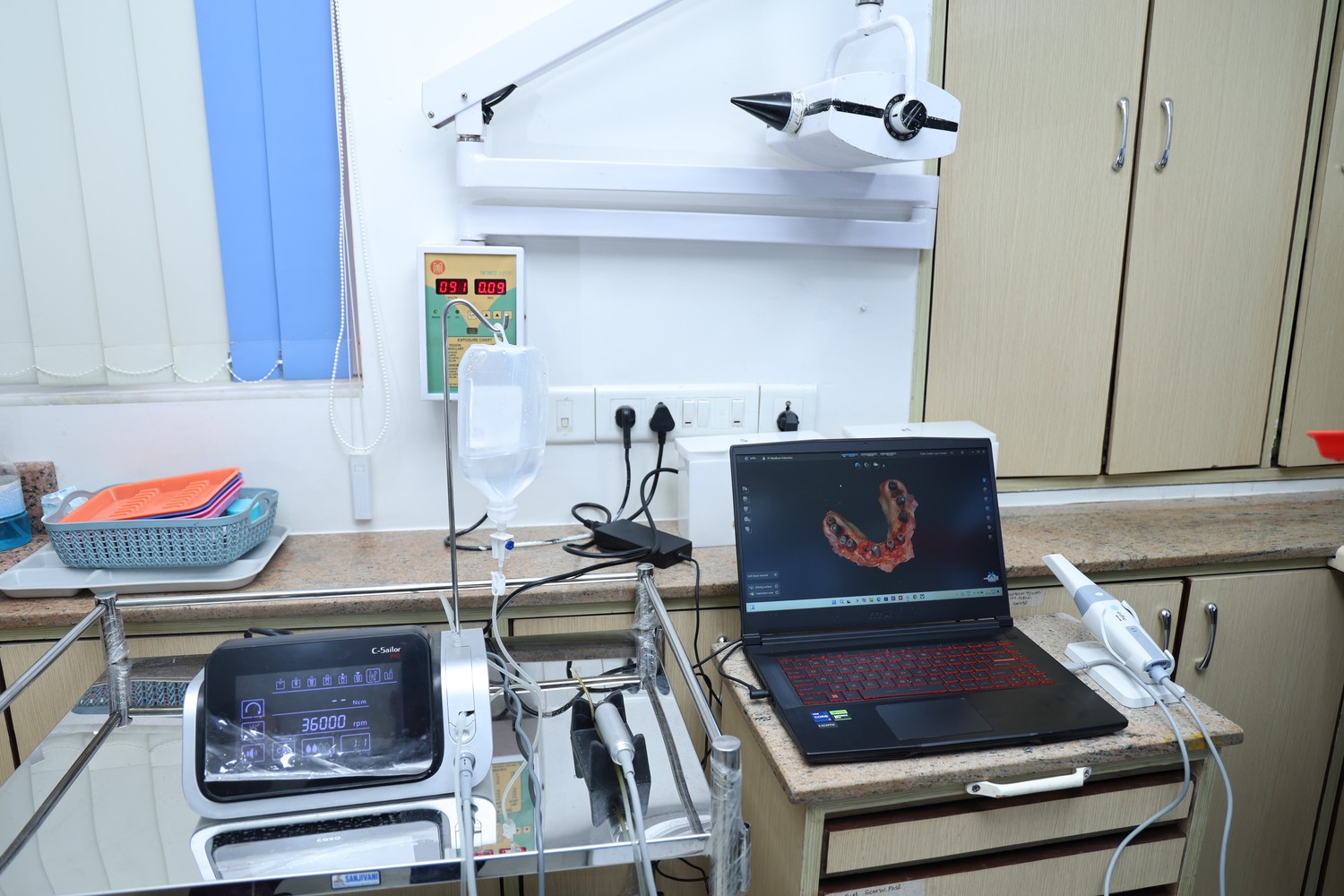Fixed Teeth in Three Days (Basal Implants)
- Home |
- Fixed Teeth in Three Days (Basal Implants)
Basal Implants
Fixed Teeth in Three Days
- Single Implants
- Quadrate Implants
- Full Mouth Rehabilitation

Basal Implants
is a revolutionary dental treatment that allows patients to receive permanent teeth in just three days. This procedure involves placing basal implants directly into the jawbone without the need for bone grafts or sinus lifts. The implants are immediately loaded with a temporary bridge on the first day, followed by fitting and adjustments on the second day. By the third day, the permanent teeth are fixed, providing a quick and efficient solution for patients. This method is known for being painless, with minimal healing time and a high success rate.
Single Implants
Single implants are a popular choice for replacing individual missing teeth. They consist of a Titanium implant surgically placed into the jawbone, which acts as a root for the artificial tooth. This post integrates with the bone over time, providing a strong foundation for a crown that mimics the appearance and function of a natural tooth, offering a durable and aesthetically pleasing solution.
Quadrate Implants
Quadrate implants involve placing multiple implants in a specific quadrant of the mouth. This approach is often used when several teeth in one area need replacement. Quadrate implants provide enhanced stability and support for dental prostheses, ensuring a more even distribution of chewing forces, which leads to improved functionality and comfort.
Full Mouth Rehabilitation
Full mouth rehabilitation is an extensive dental treatment plan designed to restore the health, function, and aesthetics of the entire mouth. This comprehensive approach may include procedures such as implants, crowns, bridges, veneers, and orthodontics. It addresses issues like missing teeth, worn dentition, bite problems, and gum disease, ultimately transforming the patient’s oral health and smile.

20 +
years experience
FAQs
What are basal implants and how do they differ from traditional implants?
Basal implants are a type of dental implant that utilizes the dense cortical bone in the basal region of the jaw for stability. Unlike traditional implants, basal implants are single-piece implants that do not require bone grafts or sinus lifts, making them suitable for patients with insufficient bone volume or density. They also allow for immediate loading, meaning permanent teeth can be fixed in less than a week after the implant surgery.
Are basal implants suitable for everyone?
Basal implants are generally suitable for patients with moderate to severe bone atrophy, including those who are diabetic, hypertensive, or smokers. However, they may not be suitable for patients with certain medical conditions, such as recent myocardial infarction or stroke, or those taking medications that inhibit blood clotting. It's best to consult with a dental professional to determine if basal implants are the right option for you.
What is maxillofacial surgery and what conditions does it treat?
Maxillofacial surgery is a specialized type of surgery that focuses on the face, jaw, neck, and mouth. It treats a variety of conditions, including jaw pain, limited jaw function, tooth impaction, oral diseases, abnormal bites, temporomandibular joint (TMJ) disorders, facial injuries, cleft lips and palates, and tumors or cysts in the head and neck area
What is the recovery process like after maxillofacial surgery?
Recovery after maxillofacial surgery varies depending on the specific procedure. Generally, you may need to follow a liquid or pureed diet for about 4 to 6 weeks, and you might experience some swelling and discomfort. Your surgeon will provide specific post-operative care instructions, and it's important to follow them closely to ensure proper healing
How often should I get a dental checkup?
It's recommended to visit your dentist every six months for a routine checkup and cleaning. However, based on your oral health, your dentist might suggest more frequent visits.
What are the best ways to practice good oral hygiene at home?
Brush your teeth twice daily with fluoride toothpaste, floss daily, use an antiseptic mouthwash, eat a balanced diet, and avoid tobacco.
How can I improve the whiteness of my teeth?
You can improve teeth whiteness by practicing good oral hygiene, avoiding staining foods and beverages, and considering professional whitening treatments or over-the-counter whitening products recommended by your dentist.
Why should I have dental X-rays taken?
Dental X-rays help identify hidden dental issues such as cavities, impacted teeth, bone loss, and infections that are not visible during a regular exam.
Why does my breath smell bad and how can I fix it?
Bad breath, or halitosis, can result from poor oral hygiene, certain foods, dry mouth, smoking, or medical conditions. Improve your oral hygiene, stay hydrated, and visit your dentist to address the underlying cause.
Why is dental work so expensive?
The cost reflects high-quality materials, advanced technology, skilled labor, and overhead costs of running a dental practice. Many dentists offer payment plans or financing options.




